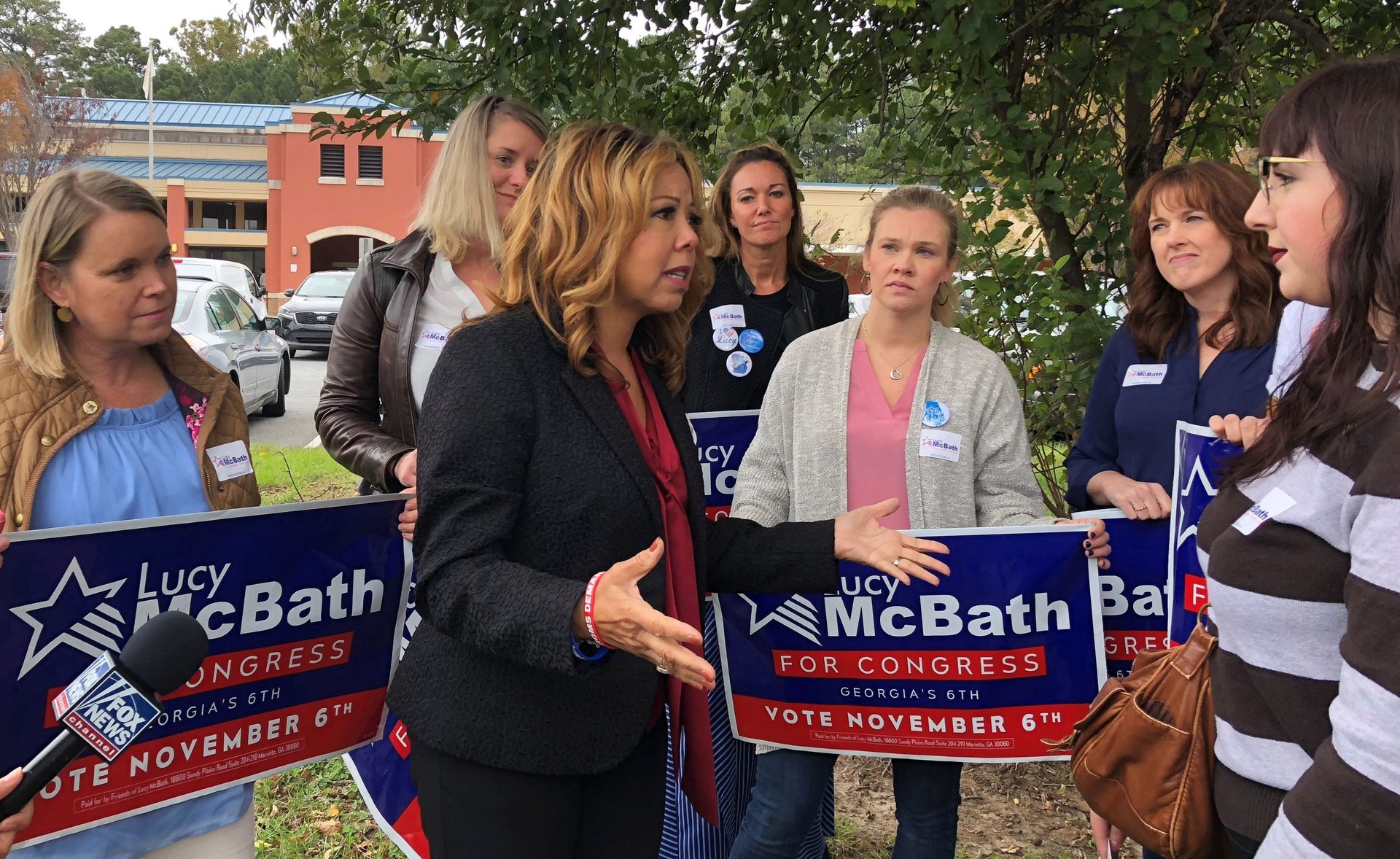American women donated a record amount this midterm election – but not the way men did
There’s a record number of women running in the US midterm elections Nov. 6—and a record amount of money from women voters has rushed in to support them and other candidates that support women’s rights.


There’s a record number of women running in the US midterm elections Nov. 6—and a record amount of money from women voters has rushed in to support them and other candidates that support women’s rights.
A flood of American women who stood on the sidelines before have leapt into politics in recent months, fundraisers say, spurred on by the election of a president who brags about sexual assault, attacks on women’s healthcare in Congress since then, and the recent confirmation of Brett Kavanaugh to the Supreme Court, among other issues.
“I’ve never had so many people reaching out to me, asking where they should put their money,” said Heather Lurie, director of the Electing Women Political Action Committee, part of a nationwide fundraising group founded in 2000 that’s raised over $6 million this cycle, up from just under $2 million last midterm election.
The traditional, male-dominated model of political donations centers around big-ticket dinners, boozy evenings of entertainment, and business networks. But some women are donating thousands a year through “giving circles”: efficient, daytime or just-after-work gatherings of small groups of people, meeting in private homes, which have proven particularly popular this cycle.
Emily’s List has long been a powerhouse in funding and promoting pro-choice female candidates. But groups like Electing Women PAC are also tapping high-net-worth women to commit thousands of dollars a year to support these women in nationwide races, while the new Winning for Women is doing the same for conservative women. Others, like Higher Heights for America, are supporting black women candidates in national and local races. And a new crop of crowdfunding options allow women to target candidates by issues and background around the country.
Nearly $400 million, most to Democrats
Women have raised $398 million for candidates running in the general election, the Center for Responsive politics reports, with three-quarters of that going to Democrats. That’s more than double 2014’s $173 million. The leap in fundraising is part of a coast-to-coast jump in political engagement by both men and women that’s expected to make these the most expensive midterm elections ever.
The jump means that Congressional candidates on average are getting 36% of their of their political donations from women, up from 28% last cycle.
Some female Senate candidates, particularly those who have sworn to reject money from corporate political action committees, like New York’s Kirsten Gillibrand and Massachusetts’s Elizabeth Warren, are getting the majority of their funding from women, the Center for Responsive Politics data shows:
In the House, the candidate receiving the most money from women isn’t even female. John Lewis, the Georgia congressman and civil rights veteran, tops the list:
Black women set “political budgets”
Black women have traditionally given generously to churches and community organizations. Now more of them are donating to political races, attracted by a “record number of black women candidates, and the sense that we have to participate,” said Kimberly Peeler-Allen, the co-founder of Higher Heights for America, a political action committee and advocacy group that supports black female candidates.
The Alabama special Senate election, in which Roy Moore was defeated by Doug Jones, galvanized black women further, she said, because they were key to Jones’s victory.
Higher Heights has been getting the message out that “you don’t have to have a lot of money to give,” Peeler-Allen said, and been rewarded by a 10-fold increase in donations this midterm cycle versus 2014, when the group had just started. “We’re seeing young college students signing up to give $3 a month, and older women writing their first political check,” she said.
The group started with “sister-to-sister salon conversations,” Peeler-Allen said, talking with black women about their leadership potential and their participation in the process. The first salon was held in a home in Harlem in 2011, with a group of close friends, and similar salons have been held across the country. Lucy McBath, the Georgia candidate for Congress and gun control advocate, is the group’s top recipient to date.
One thing that’s key is encouraging black women to set a “political budget,” she said. Donating $1,000 a year breaks down to just $83 a month, and donors can put that on automatic debit, just like automatic bill pay. These scheduled donations have been particularly meaningful to campaigns because they can reliably predict when more cash is going to come in and plan spending budgets around them.
Crowdfunding women, $43 at a time
Female candidate are also getting a big boost from crowdfunding platforms.
“The last election certainly has galvanized people, particularly women, in a way we have never seen before,” said Stacy Mason, who started WomenCount, a crowdfunding group that directs small dollar donations to women candidates (she’s also the executive director of the Bay Area Electing Women groups).
WomenCount allows donors to choose candidates to support by specific issues like health care or gun reform, geographic area, most competitive races, and even past military service (there are four women veterans in close national races this year). The average donation was just $43, but overall it has raised $1.8 million this midterm cycle for women candidates.
While the uptick in cash and female candidates is palpable, whether that will turn into wins at the polls remains a big uncertainty. The US is falling behind other nations when it comes to women’s representation in government, Mason notes. “When I started doing this work 10 years ago, women made up 18% of Congress, and the US was ranked 89th in the world” for women’s representation in government, Mason said. Now, women make up 20% of the US Congress, but the US has slipped to 104th, worldwide.